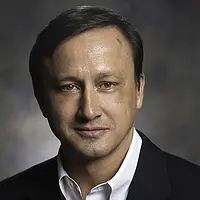RESEARCH TRIANGLE PARK, NC— RTI International, a leading nonprofit research institution, today announced their role as secretariat of a new consortium with the goal of expanding pathology-based surveillance for more precise cause of death tracking in low-resources settings around the world. The new collaboration, the Minimally Invasive Tissue Sampling (MITS) Surveillance Alliance, is sponsored by the Bill & Melinda Gates Foundation as part of its work to enable better targeted health interventions in low and middle-income countries.
As secretariat, RTI will facilitate the development of a dynamic community of practice to advance the use of MITS. RTI will partner with the Barcelona Institute for Global Health (ISGlobal), a premier research organization focused on global health challenges, that pioneered and continues to validate the MITS methodology in its Complete Diagnostic Autopsy and Minimally Invasive Autopsy (CaDMIA/CaDMIA Plus) projects and through its collaboration with and support to the Child Health and Mortality Prevention Surveillance (CHAMPS) and other efforts.
“RTI is pleased to play a critical role in the promotion of MITS,” said Norman Goco, project director and senior program manager in the Center for Applied Public Health Research. “We hope that this alliance will yield critical insights into improving mortality data and to someday help to save more lives in resource-limited areas of the world.”
MITS is a promising new approach to more precisely define specific causes of death in low and middle-income countries. Technicians with minimum training and oversight can effectively conduct MITS in low-resource settings with the support of expert technical assistance in pathology, with initial results suggesting that the MITS-based cause of death identification is frequently comparable to that of full autopsy. Complete diagnostic autopsy, the gold standard in determining cause of death, is rarely done in low and middle-income countries because of a lack of resources and infrastructure, cultural considerations, training or prioritization.
“The MITS Surveillance Alliance was formed to support the continued expansion of pathology-based surveillance work and promote the utilization, standardization and quality of MITS to better understand causes of death in various populations and geographies,” said Kathy Banke, Gates Foundation program officer. “We are excited to see the number of alliance members grow, sharing their experiences, tools, and expertise to get better information on cause of death and using that information to better target interventions.”
RTI International will provide a forum to share lessons learned and to access tools, training, materials and expertise to improve the understanding and recording of cause of death results from MITS. RTI will deliver the coordination, communications and logistics infrastructure to advance the objectives of the MITS Alliance.
- . The new collaboration, the Minimally Invasive Tissue Sampling (MITS) Surveillance Alliance, is sponsored by the Bill & Melinda Gates Foundation as part of its work to enable better targeted health interventions in low and middle-income countries
- As secretariat, RTI will facilitate the development of a dynamic community of practice to advance the use of MITS
- RTI International will provide a forum to share lessons learned and to access tools, training, materials and expertise to improve the understanding and recording of cause of death results from MITS
To request an interview, contact our Media Relations team.
